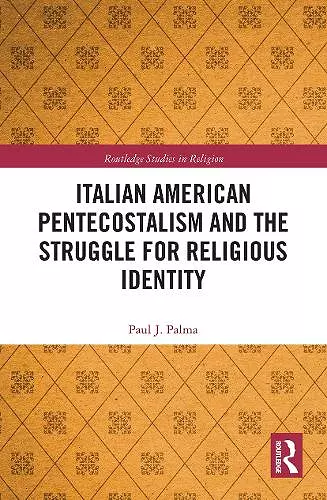Italian American Pentecostalism and the Struggle for Religious Identity
Format:Paperback
Publisher:Taylor & Francis Ltd
Published:31st Mar '21
Currently unavailable, and unfortunately no date known when it will be back
This paperback is available in another edition too:
- Hardback£145.00(9780367189198)

While many established forms of Christianity have seen significant decline in recent decades, Pentecostals are currently one of the fastest growing religious groups across the world. This book examines the roots, inception, and expansion of Pentecostalism among Italian Americans to demonstrate how Pentecostalism moves so freely through widely varying cultures.
The book begins with a survey of the origins and early shaping forces of Italian American Pentecostalism. It charts its birth among immigrants in Chicago as well as the initial expansion fuelled by the convergence of folk-Catholic, Reformed evangelical, and Holiness sources. The book goes on to explain how internal and external pressures demanded structure, leading to the founding of the Christian Church of North America in 1927. Paralleling this development was the emergence of the Italian District of the Assemblies of God, the Assemblee di Dio in Italia (Assemblies of God in Italy), the Canadian Assemblies of God, and formidable denominations in Brazil and Argentina. In the closing chapters, based on analysis of key theological loci and in lieu of contemporary developments, the future prospects of the movement are laid out and assessed.
This book provides a purview into the religious lives of an underexamined, but culturally significant group in America. As such, it will be of great interest to scholars of Pentecostalism, Religious Studies and Religious History, as well as Migrations Studies and Cultural Studies in America
"This book serves as an investigation model about migrant religion, minority Pentecostalism, Global Christianity, and the history of theology, making it a bibliographic asset for related courses." Leonardo Marcondes Alves, Religious Studies Review
ISBN: 9780367785109
Dimensions: unknown
Weight: 740g
254 pages